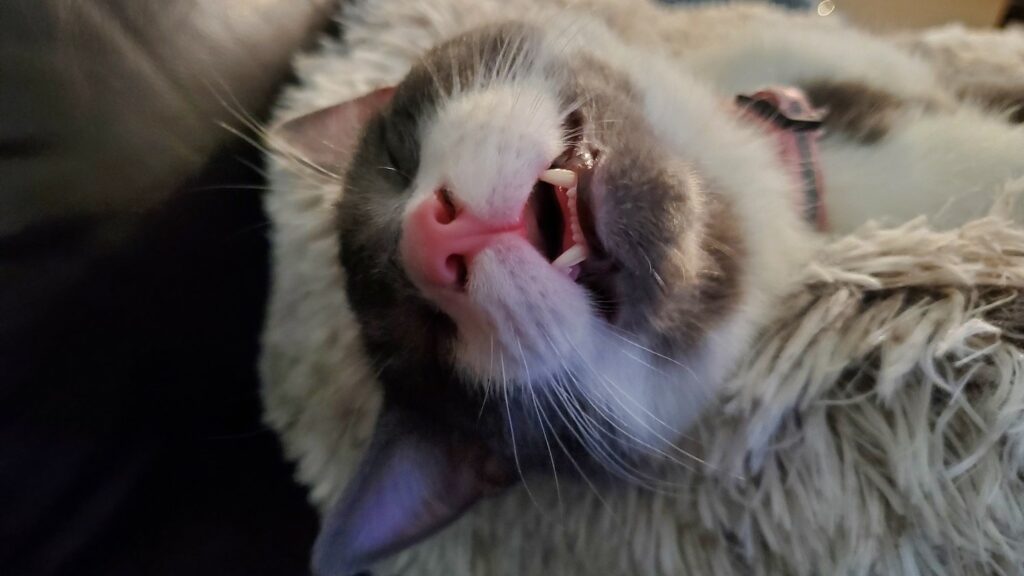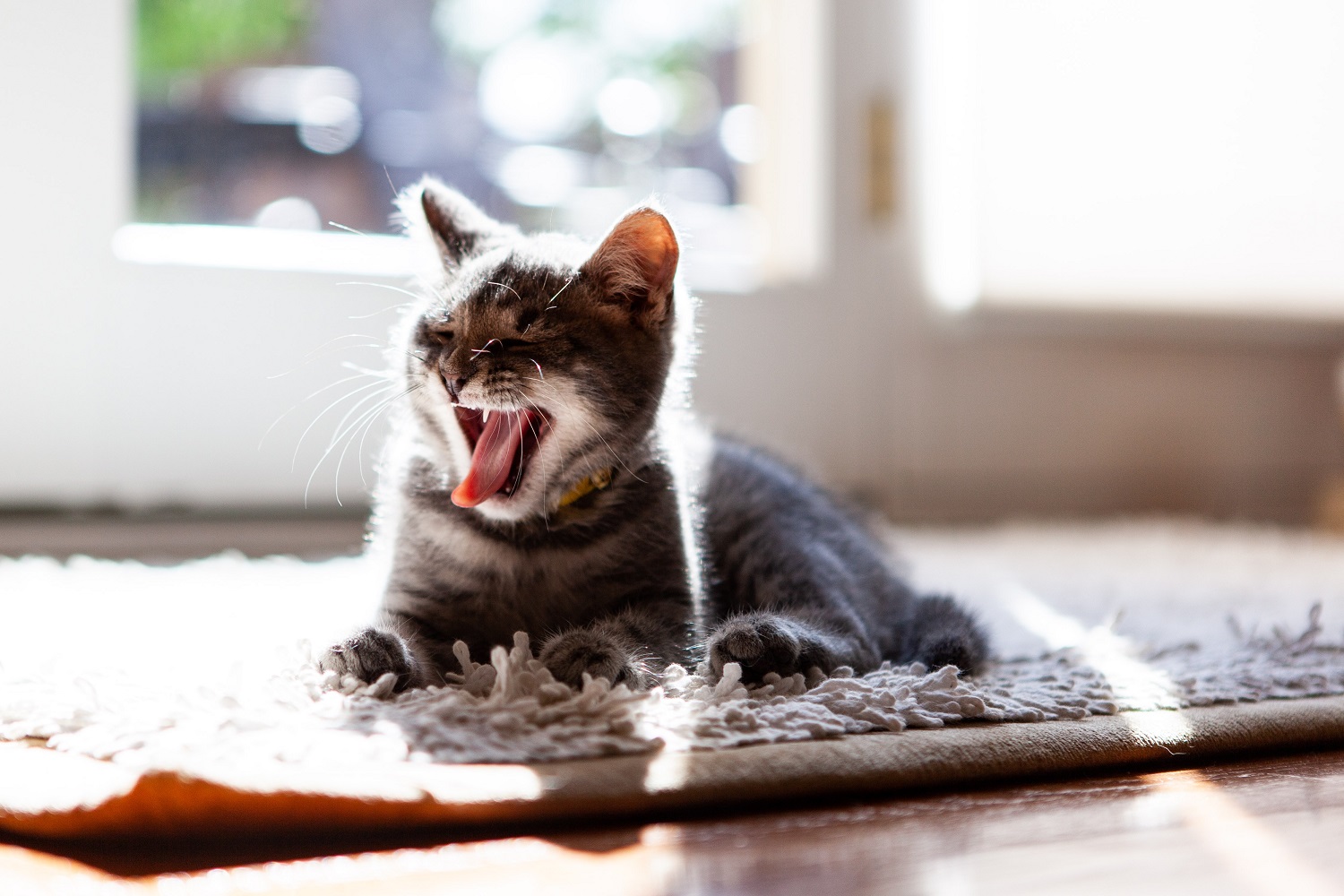You’re cuddling your sweet little kitten, they yawn in your face, and suddenly… BAM! A wave of fishy breath hits you like a slap. You weren’t prepared. Nobody warned you that your tiny furball might smell like the seafood aisle.
So, what’s going on? Is it normal? Should you be concerned?
Let’s talk about what can cause that signature fish-breath funk, what’s totally harmless, and when it’s time to call the vet.
First Things First: Is It Normal for Kittens to Have Bad Breath?
Sometimes, yes. A faint fishy odor isn’t always a reason to panic. Your kitten is going through a lot of changes in their first few months, and their body (including their breath) might not smell like roses all the time.
But persistent, foul-smelling breath, especially if it gets worse or comes with other symptoms, can be a red flag.
Common Causes of Fishy Kitten Breath
1. Food Choices
Let’s start with the obvious. If your kitten eats fish-flavored food or treats, it’s going to show up in their breath. Wet food especially tends to leave behind a stronger scent.
This is the most common cause of fishy breath, and the easiest to rule out. If they just had dinner and it came from a can labeled “ocean whitefish,” mystery solved.
2. Teething
Kittens begin teething at around 3 to 4 weeks and continue through 6 months of age. As baby teeth fall out and adult teeth grow in, their gums can become inflamed. This stage of life can cause temporary bad breath, sometimes with a slightly metallic or fishy smell.
You might even find a tiny baby tooth on the floor or notice more chewing behavior during this time. It usually passes on its own.
3. Oral Hygiene Issues
Even young kittens can develop mild plaque buildup, especially if they’re eating soft food and not yet used to dental care. If you notice:
- Persistent odor
- Yellowing around the gumline
- Mild gum redness
…it could be early signs of gingivitis or tartar buildup. Brushing your kitten’s teeth regularly (yes, that’s a thing!) can help prevent this from becoming a bigger issue later on.

I heard my humans saying my breath smells like fish… well, duh! I am a kitten after all! I mean, have they smelled their own breath? But, if it’s really bothering them, maybe they should invest in some kitty-friendly toothpaste for me. Or, here’s an idea… get me some better food! #PotMeetKettle #BlameTheHumans #FreshBreathGoals #StinkyButAdoreable #FishKisses
Joey
4. Foreign Objects
Sometimes kittens chew on things they shouldn’t: string, toys, shoelaces, or even parts of their own litter. If something gets stuck between their teeth or in their mouth, it can trap bacteria and lead to an unpleasant odor.
If the bad breath appears suddenly and seems unusually strong, gently check their mouth or ask your vet to take a look.
5. Illness or Infection
Fishy breath can occasionally signal a more serious problem, especially if it’s accompanied by:
- Drooling
- Loss of appetite
- Pawing at the mouth
- Bleeding gums
- Lethargy
These could point to oral infections, tooth abscesses, or even more complex issues like kidney disease or gastrointestinal problems. While rare in young kittens, these conditions do sometimes occur.
When to Call the Vet
If the fishy smell lingers more than a couple of days, or if your kitten shows any other unusual symptoms, it’s time to get a professional opinion. Bad breath may seem minor, but it’s often one of the first signs that something in the body isn’t quite right.
Better safe than sorry. Especially when it comes to your kitten’s health.
What You Can Do at Home
- Check their food. If the fishy smell lines up with mealtime, consider switching to a different flavor or brand.
- Keep their mouth clean. Start getting your kitten used to tooth brushing using a cat-safe toothbrush and toothpaste.
- Watch their behavior. Increased chewing, drooling, or signs of discomfort may point to teething or other oral issues.
- Keep toys clean. Wash soft toys and chew items regularly to avoid bacterial buildup.
Remember, kittens are constantly growing and changing. Some weird smells are just part of the deal, but that doesn’t mean you can’t stay proactive.
Final Thoughts: A Little Fishy Is Okay, a Lot Is Not
If your kitten’s breath smells like fish every now and then, especially after meals or during teething, it’s probably nothing to worry about. But if the smell is strong, persistent, or paired with other symptoms, don’t ignore it.
When in doubt, trust your nose and your vet. You know your kitten best.
Sources:
– Bad Breath in Cats https://www.petmd.com/cat/general-health/why-does-my-cat-have-bad-breath
– Dental Health in Kittens https://vcahospitals.com/know-your-pet/dental-care-for-kittens
– Kitten Teething Guide https://www.humanesociety.org/resources/how-help-kitten-teething
– Feline Oral Health Basics https://www.aspca.org/pet-care/cat-care/cat-dental-care
– Understanding Cat Breath Odors https://www.icatcare.org/advice/dental-disease-in-cats/
Recent Posts
Your Cat Might Be a Furry Little Healer… or at Least a Fuzzy Alarm System If you’ve ever had your cat suddenly become extra clingy when you’re under the weather, you’re not alone. From...
Cats are experts at hiding things, socks under furniture, their disdain for your playlist, and, unfortunately, symptoms of illness. In the wild, showing weakness could make them a target, so even...


